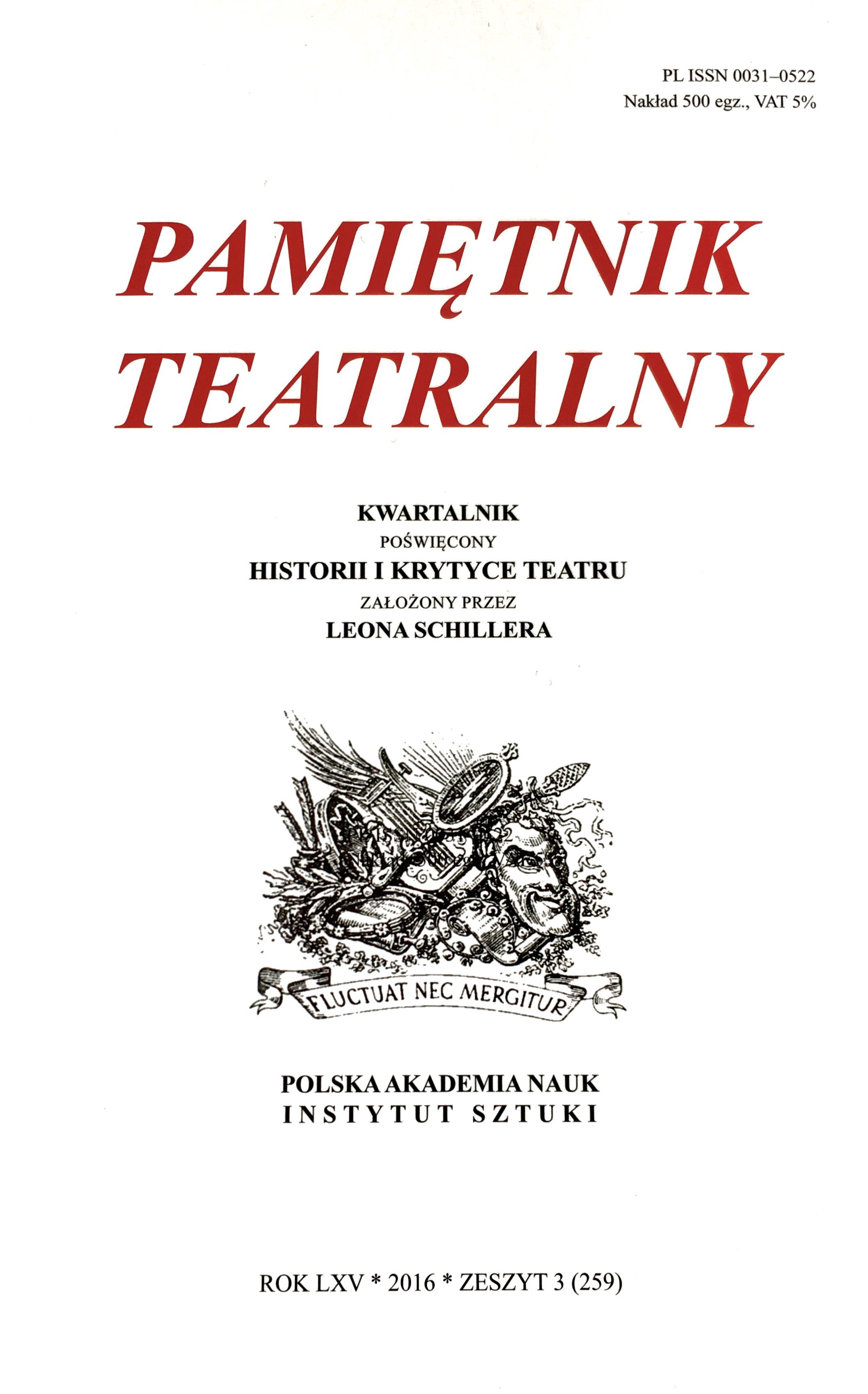Komedie Goldoniego w polskim oświeceniu. Aspekty metateatralne
Goldoni’s Comedies in the Polish Enlightenment: Metatheatrical Aspects
Author(s): Justyna ŁukaszewiczSubject(s): Theatre, Dance, Performing Arts
Published by: Instytut Sztuki Polskiej Akademii Nauk
Keywords: Goldoni;metatheatre;commedia dell'arte;
Summary/Abstract: More than a few plays by Carlo Goldoni have metatheatrical qualities. The article probes the presence of play within a play and self-reflexivity in five surviving eighteenth-century Polish translations of Goldoni’s comedies and compares them with the Italian and French originals: La moglie saggia (1752; Żona poczciwa, 1766), La vedova scaltra (1748; Panna rozumna, 1774), L’avvocato veneziano (1749/1750; Mecenas poczciwy, 1779), L’amante militare (1751; Miłość żołnierska, 1781), and Le Bourru bienfaisant (1771; Dziwak dobroczynny, 1785). Close examination reveals that the Polish versions employ theatre-related vocabulary less frequently than it can be seen in the original plays; on the other hand, however, the Polish translators have a marked tendency to mention the title of the comedy in the concluding lines of the play, which is a basic form of jeu de miroirs. The translators of La moglie saggia and L’avvocato veneziano who, in keeping with the idea of domesticating adaptation advocated by the Enlightenment, stripped Goldoni’s plays of virtually all culturally foreign elements diminished the aspects related to the commedia dell’arte tradition as well. Only Marianna Maliszewska retained the names of stock characters associated with commedia dell’arte in her Miłość żołnierska, where she even laid stress on the metatheatrical qualities of the scenes with Trufaldyn (Arlecchino). The translators reduced the role of some metatheatrical motifs, but they kept intact all the scenes deploying the play-within-a-play device in Żona poczciwa, Miłość żołnierska, and Panna rozumna. The last of those, being the most metatheatrical of Goldoni’s plays rendered in Polish by the Enlighteners, bears evidence of some adaptive devices meant to compensate for the loss of a plausible context for the metatheatrical effects that had been provided in the original by the Venetian carnival and the tradition of dell’arte, inevitably lost as a consequence of replacing the original setting with a Polish one.
Journal: Pamiętnik Teatralny
- Issue Year: 259/2016
- Issue No: 3
- Page Range: 103-116
- Page Count: 14
- Language: Polish

